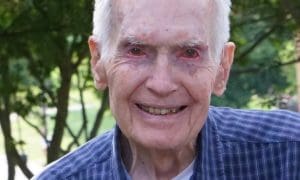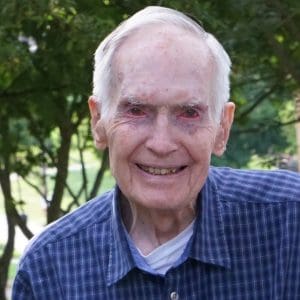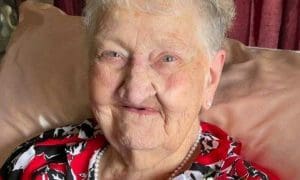Jeff says that there are different kinds of cold and hungry. The Belchertown State School and then the Northampton State Hospital fed him and kept him warm enough. His food was divided into little sections on a tray. He is grateful that he could always feed himself—some of the old timers like him had had their healthy teeth removed back in the day, to make it easier to feed them. He is grateful he could always go the bathroom by himself; there were folks who sat, undressed, in their own mess until they could be attended to.
No one had wanted it to be this way. His home in the hospital city on top of the hill represented the will to do better than had been done before. His city was built with tremendous hope that the fresh air, the hard work, the regular schedules and the humane treatment would make things better for him and everyone else there with him. He was there for the tail end of the sorting out among residents. The place had been filled not only with people who suffered from severe mental health issues, but also filled with mother’s with post partum depression, people who just didn’t speak English, people who lived with complex physical disabilities or who were Deaf, folks who were old and alone and even folks who were just too rebellious and sexually active for someone’s approval.
When the State Hospital closed, Jeff walked from Northampton to Springfield. There were no corridors and no schedules. There were no more pills and no more clanking, weakly heated spaces. There were no more trays. Everywhere he looked, there were closed doors. Car doors, storefronts, front doors, garage doors. He was, at long last, outside the doors that had defined him.
When the New England outside cold bit his feet, his face and his fingers—when the emptiness of hunger ate him alive, he opened a store’s closed door, opened a glass door in that store and then drank a quart of milk, for which he was arrested and held in jail. He hadn’t known he had a brother until a man arrived to take him home. The man was unkind. He kept him in a room, gave him one meal a day on those silver trays with the tinfoil on top that you peel back.
When his brother got sick, a social worker met Jeff and brought him to the Carson Center, where there was a self-advocacy group for people with developmental disabilities. Jeff watched carefully as the group members hugged and laughed in greeting. He did as all the others did—he filled his plate with the food they had made one another. He walked to a couch away from them, sat down, leaned his head forward against the wall, curled his body and arms over the dear plate and cried.
When he looked up, he could see that they were gathered around him, some sitting, some standing. Some hung their heads in respect. Some looked at him and cried, nodding. He knew that they knew that there is a chill only truly recognized by its absence, a kind of hunger only known once you are fed.
Jeff lives on his own now. He is a group treasurer, helping to decide how dues are collected and spent. He is learning how to read.
By JAC Patrissi








